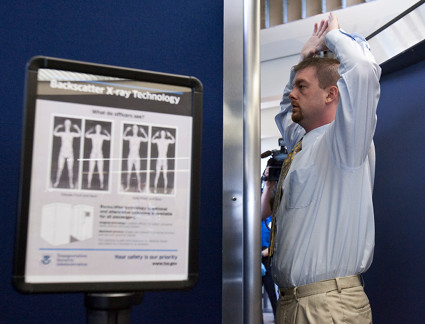Controversial X-ray scanners at Kennedy and Laguardia being phased out

The Transportation Security Administration (TSA) has begun phasing out X-ray body scanners from a few major airports and replacing them with machines that use a faster — and possibly safer — technology.
The units were removed from LaGuardia earlier this summer and TSA is in the process of removing and reallocating the units at JFK (John F. Kennedy International). The X-ray scanners are also being swapped out at Boston Logan International Airport, Los Angeles International Airport, Chicago O’Hare and Orlando.
The new “millimeter” machines use radio waves instead of X-rays, which have been criticized by some radiation experts, and eliminate the need for TSA agents to screen countless graphic images of naked travelers. A generic outline of a body is produced instead.